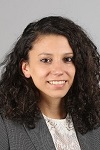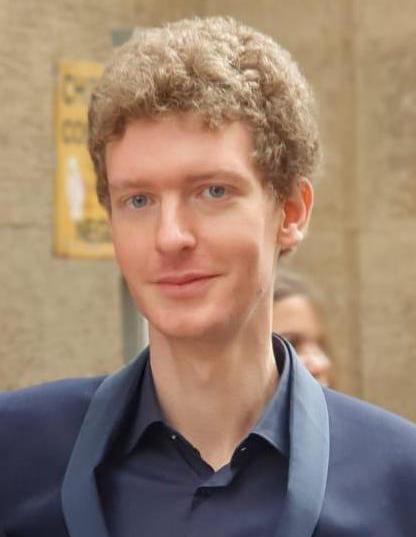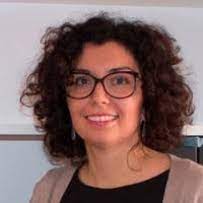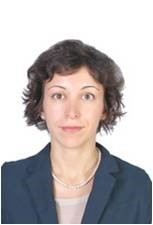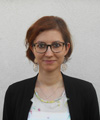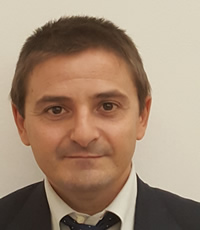Studying at the University of Verona
Here you can find information on the organisational aspects of the Programme, lecture timetables, learning activities and useful contact details for your time at the University, from enrolment to graduation.
Academic calendar
The academic calendar shows the deadlines and scheduled events that are relevant to students, teaching and technical-administrative staff of the University. Public holidays and University closures are also indicated. The academic year normally begins on 1 October each year and ends on 30 September of the following year.
Course calendar
The Academic Calendar sets out the degree programme lecture and exam timetables, as well as the relevant university closure dates..
| Period | From | To |
|---|---|---|
| I semestre | Oct 1, 2024 | Jan 31, 2025 |
| II semestre | Mar 3, 2025 | Jun 13, 2025 |
Exam calendar
Exam dates and rounds are managed by the relevant Science and Engineering Teaching and Student Services Unit.
To view all the exam sessions available, please use the Exam dashboard on ESSE3.
If you forgot your login details or have problems logging in, please contact the relevant IT HelpDesk, or check the login details recovery web page.
Academic staff
 mariano.ceccato@univr.it
mariano.ceccato@univr.it
 mila.dallapreda@univr.it
mila.dallapreda@univr.it
 stefano.gatti@univr.it
stefano.gatti@univr.it
 daniela.pianezzi@univr.it
daniela.pianezzi@univr.it
 rosamaria.vadala@univr.it
rosamaria.vadala@univr.it
Study Plan
The Study Plan includes all modules, teaching and learning activities that each student will need to undertake during their time at the University.
Please select your Study Plan based on your enrollment year.
1° Year
| Modules | Credits | TAF | SSD |
|---|
2° Year It will be activated in the A.Y. 2025/2026
| Modules | Credits | TAF | SSD |
|---|
| Modules | Credits | TAF | SSD |
|---|
| Modules | Credits | TAF | SSD |
|---|
| Modules | Credits | TAF | SSD |
|---|
1 module among the following2 modules among the following1 module among the following (A.A. 2024/2025 Network science and econophysics not activated)1 module among the following2 modules among the followingLegend | Type of training activity (TTA)
TAF (Type of Educational Activity) All courses and activities are classified into different types of educational activities, indicated by a letter.
Type D and Type F activities
Modules not yet included
Complex systems and social physics (2024/2025)
Teaching code
4S009082
Teacher
Not yet assigned
Credits
6
Also offered in courses:
- Complex systems of the course Master's degree in Artificial intelligence
- Complex systems and social physics of the course Master's degree in Data Science
Language
English
Scientific Disciplinary Sector (SSD)
FIS/02 - THEORETICAL PHYSICS, MATHEMATICAL MODELS AND METHODS
Period
II semestre dal Mar 3, 2025 al Jun 13, 2025.
Courses Single
Authorized
Learning objectives
The aim of the course is to provide the student with the skills of theoretical physics and mathematical physics methods for the modeling and characterization of large sets of data, time series, time sequences, and hierarchical structures in aggregation. Students will also be provided with the methods of mathematical physics for the study of correlation, causation, and aggregation relationships in complex social systems.
At the end of the course the student has to show to have acquired the following skills: ability to develop formal models for the qualitative and quantitative analysis of databases, time series, and dynamics of complex systems in interaction for the detection of causal relationships, correlation structures, and forecasting schemes.
Learning assessment procedures
To pass the exam, the student must demonstrate: - have understood the principles underlying theoretical physics and mathematical physics for the modeling and characterization of statistical mechanics systems - be able to present their arguments in a precise and organic way without digressions - know how to apply the acquired knowledge to solve application problems presented in the form of exercises, questions and projects.
The final exam will include the writing of an essay on one or more topics covered in the course, with subsequent presentation and discussion.
Oral exam, possibly including the discussion of an essay on a topic covered in the course.
Students with disabilities or specific learning disorders (SLD), who intend to request the adaptation of the exam, must follow the instructions given HERE
Evaluation criteria
Up to 30 points cum laude will be assigned to the oral exam.
Career prospects
Module/Programme news
News for students
There you will find information, resources and services useful during your time at the University (Student’s exam record, your study plan on ESSE3, Distance Learning courses, university email account, office forms, administrative procedures, etc.). You can log into MyUnivr with your GIA login details: only in this way will you be able to receive notification of all the notices from your teachers and your secretariat via email and soon also via the Univr app.
Graduation
Deadlines and administrative fulfilments
For deadlines, administrative fulfilments and notices on graduation sessions, please refer to the Graduation Sessions - Science and Engineering service.
Need to activate a thesis internship
For thesis-related internships, it is not always necessary to activate an internship through the Internship Office. For further information, please consult the dedicated document, which can be found in the 'Documents' section of the Internships and work orientation - Science e Engineering service.
Final examination regulations
Upon completion of the Degree programme, students will need to submit and present their thesis/dissertation, which must be in English and focusing on a scientific topic covered during the programme. Alternatively, the thesis/dissertation may consist of the analysis and solution of a case study (theoretical and/or relevant to a real industrial context), experimental work, possibly developed as part of an internship, or original and independent research work that may include mathematical formalisation, computer design and a business-oriented approach.
These activities will be carried out under the guidance of a Thesis Supervisor at a University facility, or even outside the University of Verona, either in Italy or abroad, provided that they are recognised and accepted for this purpose in accordance with the teaching regulations of the Master's Degree programme in Data Science.
22 CFU credits shall be awarded for the final examination (assessment of the thesis/dissertation).
The Graduation Committee, which is in charge of the evaluation of the final examination (presentation of the dissertation in English) shall evaluate each candidate, based on their achievements throughout the entire degree programme, carefully assessing the degree of consistency between educational and professional objectives, as well as their ability for independent intellectual elaboration, critical thinking, communication skills and general cultural maturity, in relation to the objectives of the Master's Degree programme in Data Science, and in particular, in relation to the topics dealt with by the candidate in their thesis.
Students may take the final exam only after they have passed all the other modules and exams that are part of their individual study plan, and fulfil all the necessary administrative requirements, in accordance with the terms indicated in the General Study Manifesto.
The graduation exam and ceremony will be carried out by the Graduation Committee appointed by the Chair of the Teaching Committee and composed of a President and at least four other members chosen among the University's lecturers.
The thesis/dissertation will be assessed by the Dissertation Committee, which is composed of three lecturers possibly including the Thesis Supervisor, and appointed by the Chair of the Teaching Committee. The Dissertation Committee shall produce an evaluation of the dissertation, which will be submitted to the Graduation Committee, which will issue the final graduation mark. The Teaching Committee shall govern the procedures of the Dissertation Committee and the Graduation Committee, and any procedures relating to the score awarded for the final exam through specific regulations issued by the Teaching Committee.
Documents
| Title | Info File |
|---|---|
|
|
pdf, it, 326 KB, 19/03/24 |
Modalità di frequenza
Come riportato nel Regolamento Didattico, la frequenza al corso di studio non è obbligatoria.

 +39 045 802 7913
+39 045 802 7913

